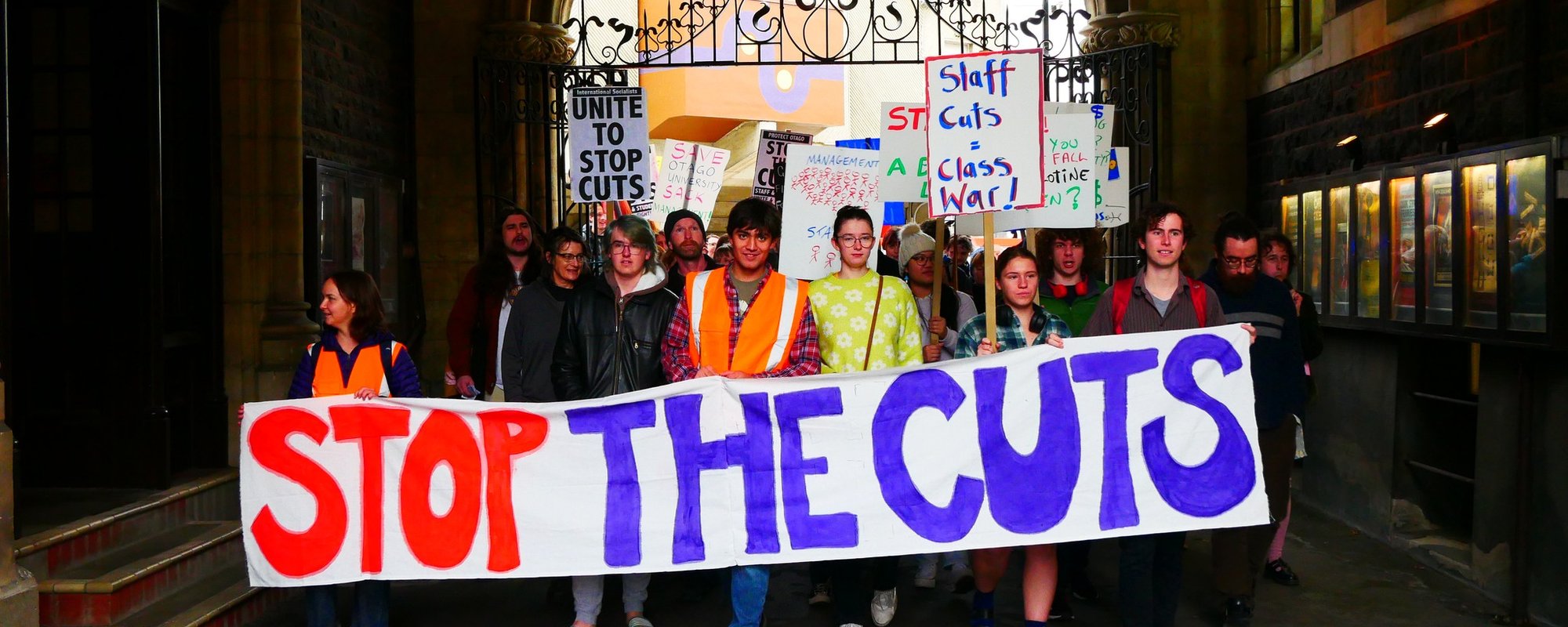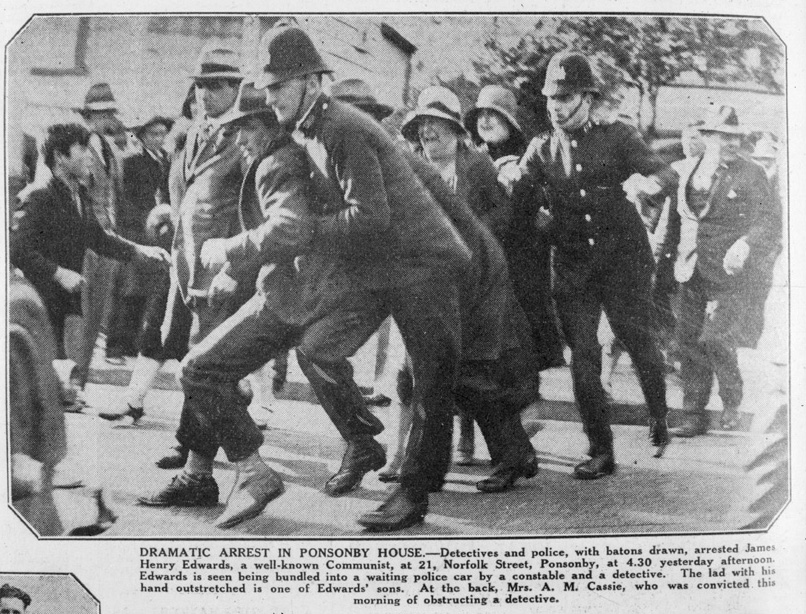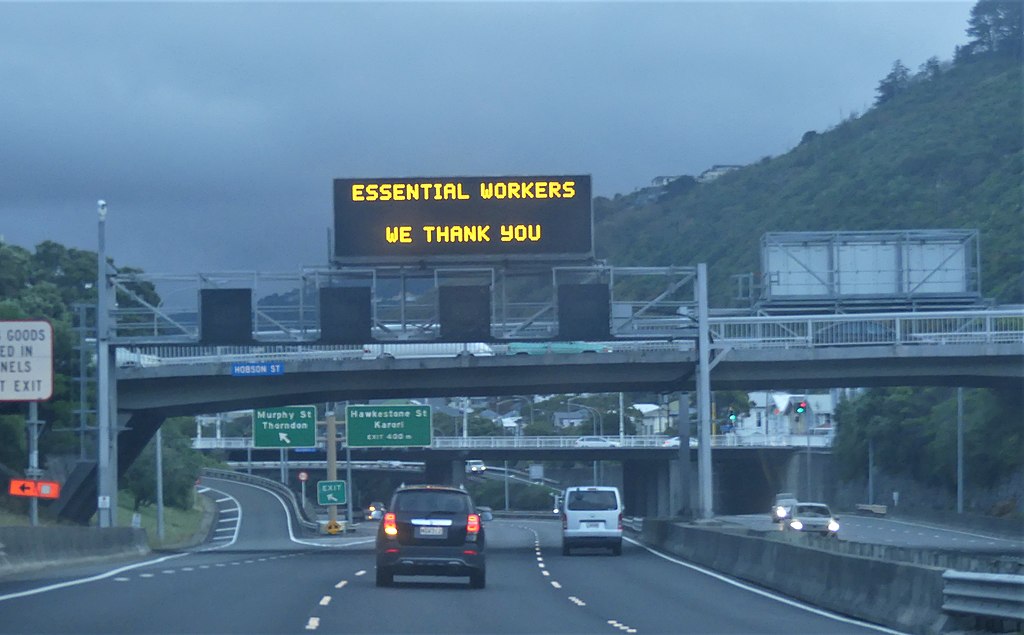This is the transcript of a speech given at the anniversary of the closure of Kiwirail’s Hillside workshop in Dunedin by Andrew Tait on Friday 20th December, 2013.
Right now in Korea, the railway workers union is out on strike against privatising rail. The government has met the strike with repression but this is nothing new in Korea – unions played a key role in overthrowing a military dictatorship in 1987. In China, too, independent trade unions are stirring.
It’s no surprise that railway workers are at the forefront of the workers movement. Along with the telegraph, rail made the modern industrial system, knitting all the disparate parts of the economy into one whole. Rail was the herald of progress, of the modern era. This workshop, Hillside, has been here since 1875 and has been a New Zealand Rail shop since 1901. Hillside was like a mighty heart, pumping trains out across the country along veins of steel rail. New Zealand is obsessed with the farmer, but without the railway worker, the shearer, the freezing worker and the watersider, farmers’ work is worth nothing. More than any other workshop, Hillside was the heart of the city and the heart of the south. More than that, Hillside was the heart of the working class.
Railway workers have always been on the frontlines of the union movement. Because rail ties together an economy and a country, rail workers were in a position to make sense of the world as a whole, and to imagine a world where co-ordinated, co-operative work could bring wealth to everyone – to imagine socialism. In such a spread out, remote country, transport is one of our biggest costs. A national railway system was part of the mix that gave New Zealand one of the best standards of living in the world.
This is no longer the case. This is the anniversary of the closure of Hillside, of the contracting out of essential work to China, of another step down into third world status. Richard Prebble came to power with the Lange Labour government promising to save rail. The two-faced traitor in power destroyed it. He claimed in his book I’ve been thinking that wagons and goods would regularly get lost. Prebble lost the whole rail system. He claimed workers were living a “feather-bed” life of luxury, and sold New Zealand Rail for a song to millionaire crooks Fay and Richwhite.
This is a crime committed by a kleptocracy – a gang of thieves – dressed up as economic theory. The reality is, in the strike-struck 1970s when union power was apparently out of control, our economy was more internationally competitive than after 20 years of industrial “peace”. Our idiot business leaders are slowly bleeding the country to death, running down our health, education and economic base. The cost of industrial peace is blood – like 29 deaths in Pike River – and poverty.
This is the result of globalisation. The era of the welfare state is gone and won’t come back. The union strategy of co-operation with bosses and government has failed. We unionists in the private sector are a dwindling minority – less than 10% – and the public sector is threatened by outsourcing and casualisation too. We are weaker than ever, and so it is more important than ever that we stand up for those weaker than ourselves – casual workers, beneficiaries, workers struggling to unionise overseas. At the end of the day, until workers organise in China and win decent wages, our living standards will continue to fall. Anti-sexism, anti racism, and international solidarity is a must.
Then let us pray that come it may,
(As come it will for a’ that,)
That Sense and Worth, o’er a’ the earth,
Shall bear the gree, an’ a’ that.
For a’ that, an’ a’ that,
It’s coming yet for a’ that,
That Man to Man, the world o’er,
Shall brothers be for a’ that.








